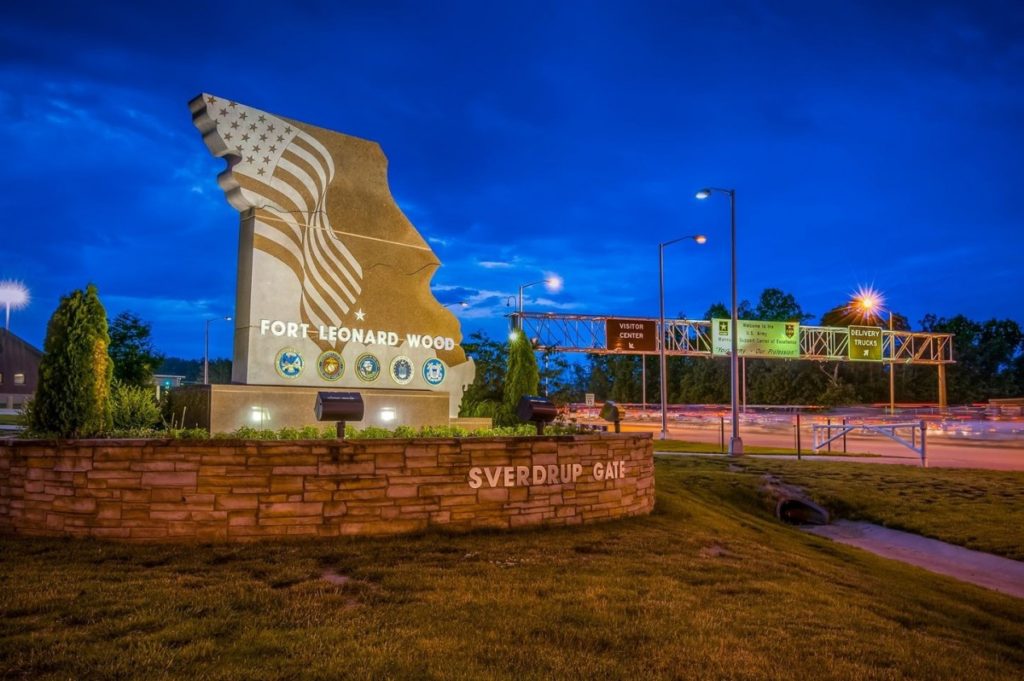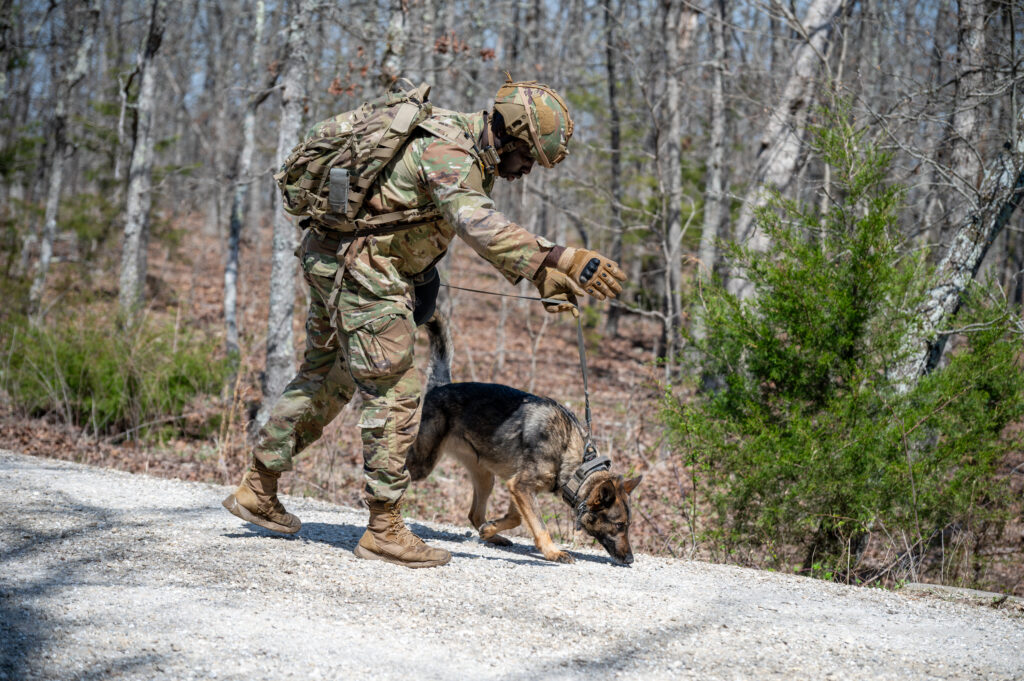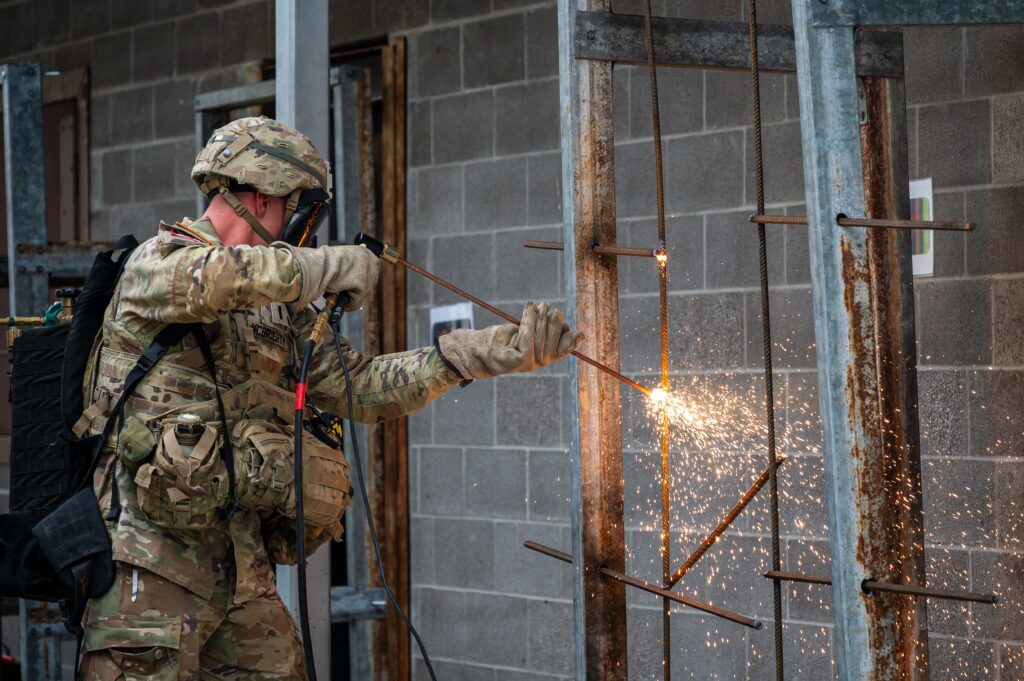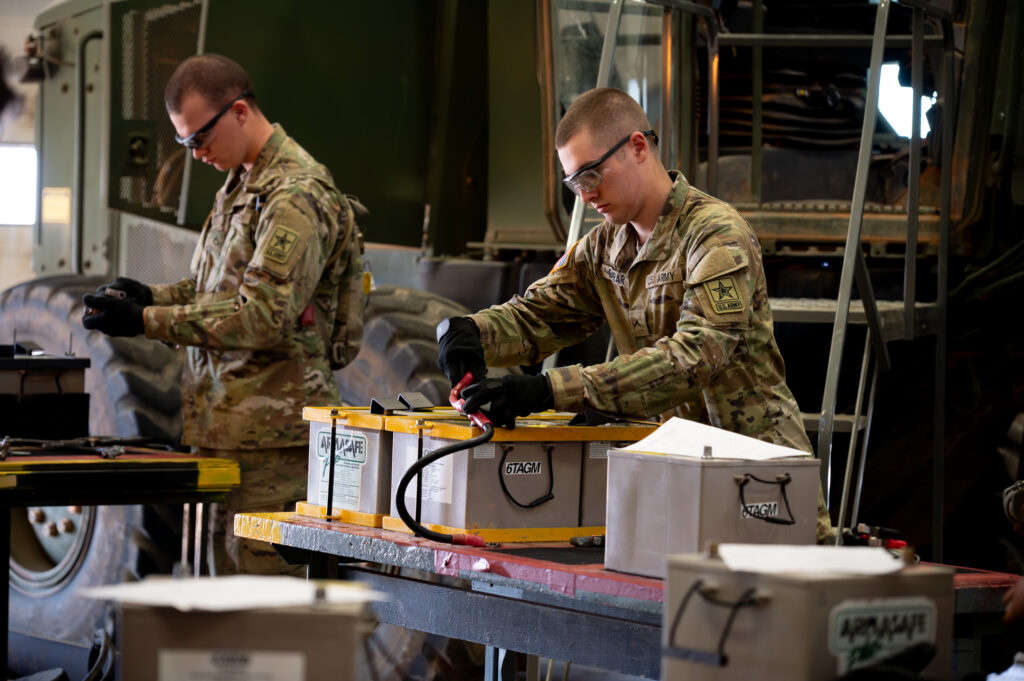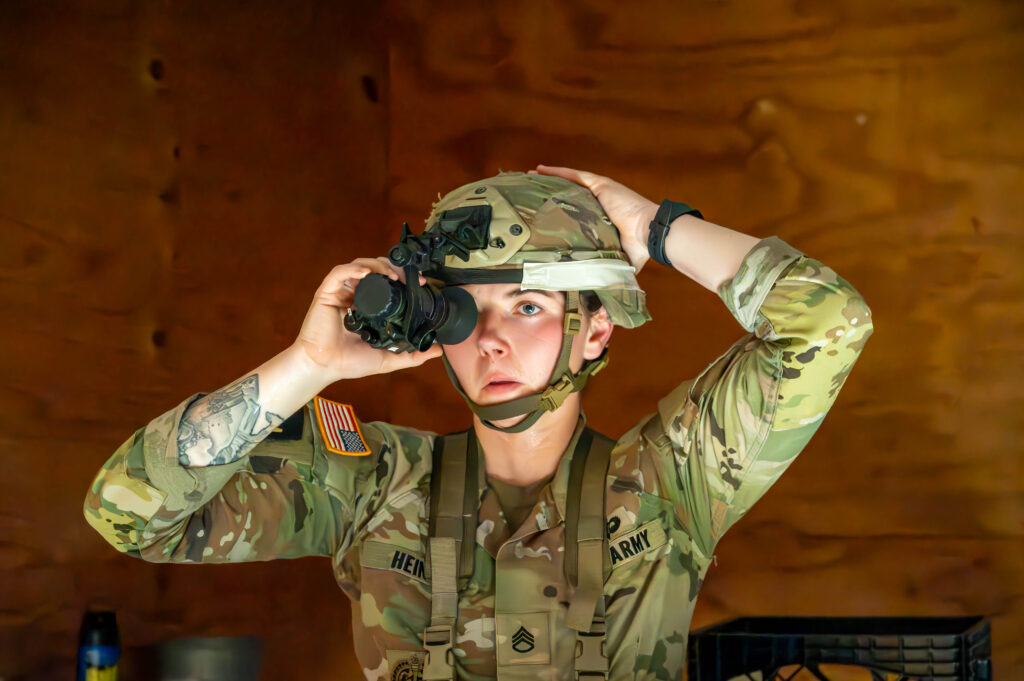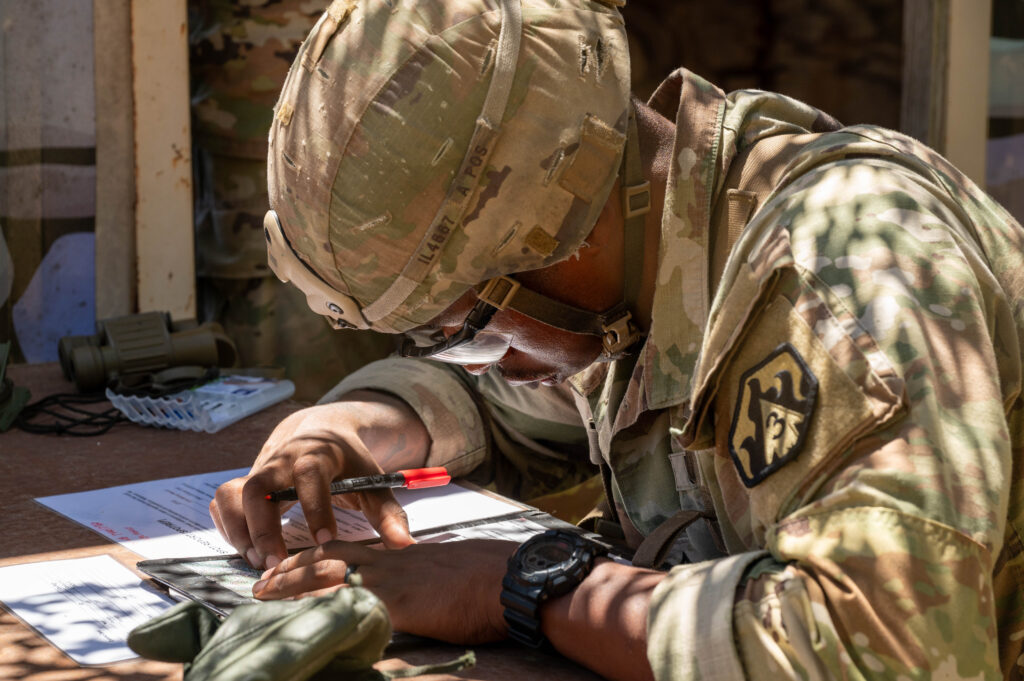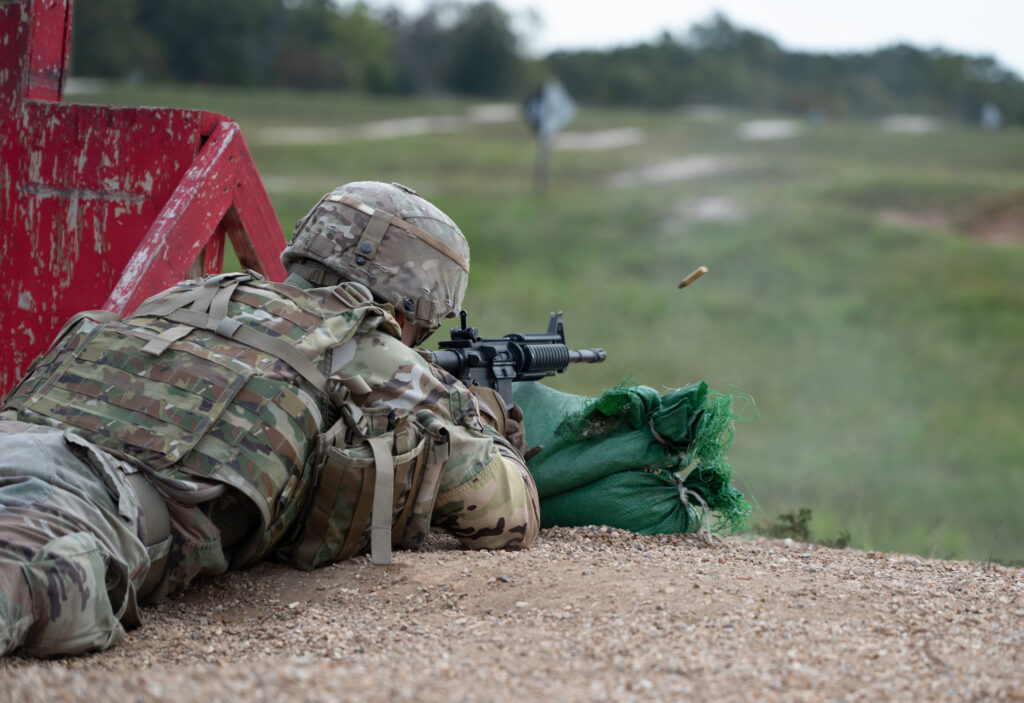Brian Hill
FORT LEONARD WOOD, Mo. (March 15, 2021) — March is National Women’s History Month. It’s a time to praise the incalculable contributions of women in this country while also setting aside a moment to take stock of how far America has come with regards to gender equality.
One measure of success for the Army, according to Lt. Col. Wendy Tokach, 787th Military Police Battalion commander, is that gender is no longer a qualifier in most situations.
“What it shows is that we’re finally getting to the point in the military where your gender doesn’t matter,” she said.
Women now serve in every military occupational specialty in the Army, but Tokach said that wasn’t always the case.
In 2002, when she first commissioned as an MP, Tokach said she wouldn’t have been able to choose a combat arms branch if she’d wanted.
“People ask me, ‘What branch would you have picked?’” she said. “It would’ve been cool to be a tanker, or go branch armor, but that wasn’t an option.”
Tokach said she remembers some of the conversations back home while she was deployed to Iraq in 2004.
“People in the United States were still contemplating whether or not women could be in combat,” she said. “I was thinking, ‘This is my second deployment.’ Two years into that war and four years into Afghanistan and it was still a conversation.”
Battalion Command Sgt. Maj. Cari Ann Rajewski has been an MP in the Army for nearly 26 years. She said one of the biggest changes she’s seen has been the inclusion of women in combat missions.
“There are female Rangers and female infantry officers,” she said. “A female Soldier today is unstoppable.”
Building effective teams
Tokach said gender is irrelevant — a good leader is somebody who can build an effective team to accomplish the mission.
“You can’t accomplish anything solely by yourself in the Army,” she said. “That’s just not how the Army is built to work. We work as teams and squads. To do that, you have to have everybody on the team supporting and working towards that mission together.”
Rajewski added there are many ways to lead, but the best leaders have one very important quality in common.
“Some push their teams really hard; others emphasize work-life balance; some are more hands on; and others delegate profusely,” she said. “A good leader, to me, is a person of passion and dedication. Leaders need to be able to be a source of inspiration and be a motivator towards the cause.”
Rajewski said she gained her leadership qualities from observing the good and bad leaders she’s had in the past.
“I picked out the good qualities and bad from each leader and stuffed them into my ruck sack,” she said. “I use the good things I liked and learned not to do the bad things.”
Good mentors, role models
Both Tokach and Rajewski can name the most influential people in their careers.
Tokach, who enlisted and served in Public Affairs for six years before becoming an MP officer, remembered one of her detachment commanders, 1st Lt. Jackie Huber, who encouraged Tokach to apply for the Reserve Officers’ Training Corps.
“She came from being an MP platoon leader into Public Affairs,” Tokach recalled. “I was already leaning in that direction after a deployment to Bosnia, and she solidified my decision and encouraged me.”
Rajewski said she has many role models, but two of her favorites are retired Command Sgts. Maj. Brenda Curfman and Dawn Rippelmeyer.
“They were each a Soldier’s Soldier and role models for both males and females in the MP Corps,” she said. “They represented to me that I could be stern, enforce standards and accomplish any mission, while still taking care of my Soldiers and their families with a genuine, caring heart.”
A leadership trait Tokach admires very much is compassion.
“I’ve had some great leaders who’ve taught me the power of compassion and how to influence those underneath me in a positive way,” she said. “When a subordinate looks up, they should see somebody they want to be like.”
The overall measure of success, however, is mission accomplishment.
“Our goal, coming into this command partnership, was that we really wanted to make 787 the premier training battalion on this installation and in the Army,” Tokach said. “We have a reputation, especially for cadre who are getting assigned here — they know they will be absolute professionals here. They want to be part of a team like that.”
Tokach said she’s proud to train the next generation of Soldiers.
“They are so much smarter,” she said. “They have so many more resources, but one of the things they struggle with is resiliency. Work hard, be proud, be confident — don’t let your own mental blocks be what holds you down. If you’re determined and you really work towards something, you will be pleasantly surprised at the results. We’re finally to the point in the Army where it doesn’t matter what gender you are, or what color you are. Just do your job — do it well and represent.”

-30-
About Fort Leonard Wood
Fort Leonard Wood is a thriving and prosperous installation that has evolved from a small basic training post more than 75 years ago to a premier Army Center of Excellence that trains more than 80,000 military and civilians each year.
Fort Leonard Wood is home to the U.S Army Maneuver Support Center of Excellence and three U.S. Army schools: the U.S. Army Engineer School; U.S. Army Chemical, Biological, Radiological and Nuclear School; and the U.S. Army Military Police School. In addition to training engineer, CBRN and military police specialties for the Army, Fort Leonard Wood also provides gender-integrated in-processing and Basic Combat Training for new Soldiers.
Fort Leonard Wood also hosts and trains with the largest Marine Corps Detachment and Air Force Squadron on any Army installation as well as a large Navy construction detachment.
More information about Fort Leonard Wood is at: https://home.army.mil/wood/index.php/about/mission
